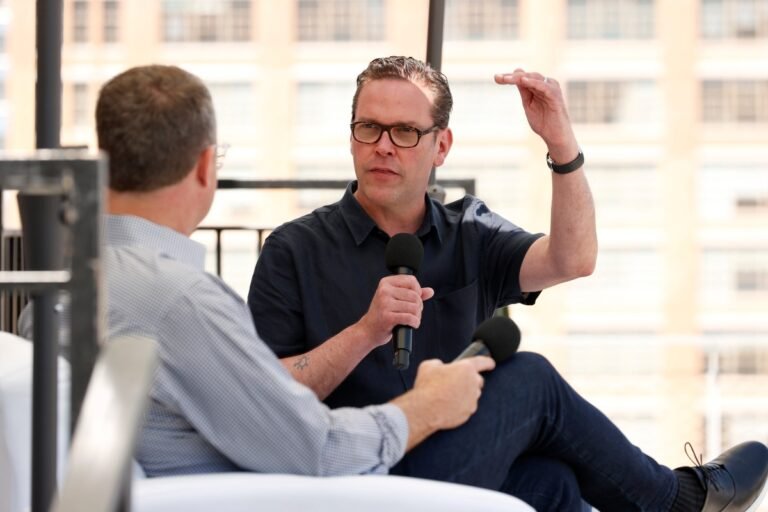
Despite a challenging economic period in 2022, this year’s investment into the space tech sector has continued to show signs of recovery.
Space tech has showcased a remarkable resilience amid macroeconomic uncertainty, bucking trends in the broader venture capital tech market.
Approximately $4.8 billion was invested into the space tech industry by the end of Q3, with growth-stage investment activity increasing.
These DoD contracts will stimulate a cascading effect throughout the broader space tech market.
This surge is expected to be catalyzed by strategic initiatives from respective governments, underscoring a global expansion and diversification of venture capital interest and commitment in the space tech sector.

Black founders in the UK are also seeing the impact of venture’s winter year.
That would put 2023 behind 2022, when such founders raised 1.02% ($316 million of $30.88 billion), and 2021, when Black founders were allocated 1.13% ($454 million out of $40.03 billion) of all venture investment in the country.
The downward trend in the share of investment allocated to Black founders most likely stems from the venture downturn of these past two years.
For example, Black founders in the U.K. raised only 0.28% of venture funds in 2019, 0.23% in 2018, and 0.38% in 2017.
Per Extend Ventures, between 2009 and 2019, only 38 Black founders were able to raise venture funding at all in the country; that number now stands at 80.

The investment is coming by way of Verdane taking a substantial stake Fountain Venture, the investment vehicle controlled by the founder and current chairman of Meltwater, Jørn Lyseggen.
Joakim Kjemperud, a principal at Verdane, said the deal also gives his firm a stake in an HR firm, Jobylon, although Meltwater is by far the bigger asset.
In that context, it’s notable that Verdane opted to invest in Fountain Venture rather than directly in Meltwater.
That will give Verdane not only the stake in Meltwater, but also a stake in Jobylon and whatever else Fountain and Lyseggen find interesting.
Meltwater built AI in-house and has acquired a stream of businesses in an analytics consolidation play.

Australia-based link-in-bio platform Linktree announced today that it has acquired competitor Koji from its parent company GoMeta for an undisclosed amount.
The company is offering Koji users three months of Linktree Pro plan as a trial.
“We’re thrilled to welcome Koji users to the Linktree community and are excited to continue to innovate on the category we created.
The company launched Koji as a link-in-bio platform in March 2021 and raised $16 million through its parent entity.
In a previous avatar, Koji let non-technical developers make “mini apps on the web,” which were later turned into templates on the link-in-bio platform.

For a VC firm, the second fund is a make-or-break moment.
First, after raising €225 million for its initial fund ($245 million at today’s exchange rate), Singular managed to raise €400 million for the second fund.
Second, all the investors who participated in the first fund are back as limited partners in the second fund — this is a good signal.
This wasn’t an obvious outcome for the VC firm, as it’s been a wild ride over the past two or three years in venture capital.
Building a big European VC fundUnlike many VC firms based in Paris, Singular has been investing in European startups from day one.

In 2020, the startup raised $27.5 million in its Series E funding round led by Alphabet’s CapitalG.
It competes with the likes of Capital Float, Lendingkart and Indifi, which all work toward offering credit to small enterprises in the South Asian nation.
One key reason for startups like Aye Finance and others to gain enough traction in India is the lack of credit for small businesses.
“Aye Finance is on a growth journey, and we are delighted to partner with BII, who have a deep understanding of the financial services sector in India.
“Our investment in Aye Finance underscores our commitment to back companies that have a strong development impact philosophy and promote financial inclusion for India’s underserved groups.

The global weakening economy has hit the investors’ appetite, leading to a decrease in investment into some of the most high-profile companies. Viacom18, one such company, saw its intended investment…

Kobie Fuller’s “eight elements of a successful enterprise software company” framework provides a helpful checklist for investors and entrepreneurs looking to identify potential success factors in any given software startup.…

The Family Fund & Founder Community, which goes by F3C, announced $25 million in new capital commitments and its focus on becoming the largest community of founders that co-invest in…

One of Walmart’s primary goals for expanding in India is to take advantage of the country’s growing e-commerce and payments markets. The company has already invested over $2.5 billion in…














